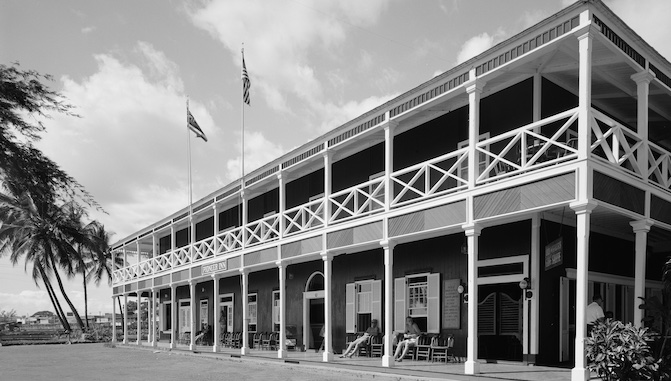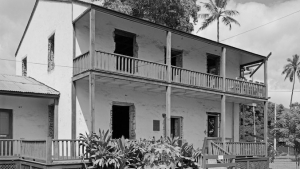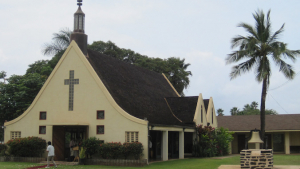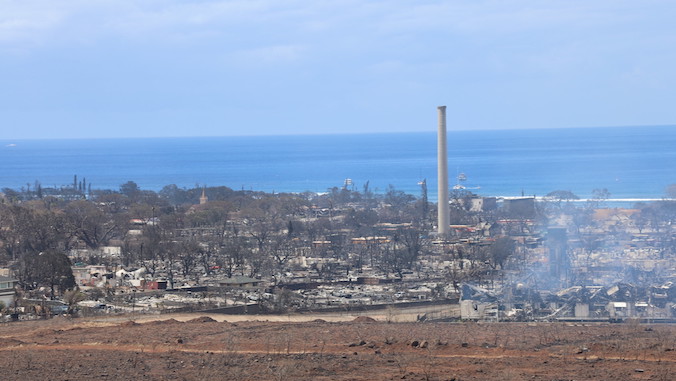
Long before it was a bustling tourist spot, Lahaina, Maui was the capital of the Kingdom of Hawaiʻi in the early 19th century, a major whaling port and one of the first places in Hawaiʻi where the missionaries settled. The town’s many centuries-old buildings earned Lahaina a National Historic Landmark designation by the National Park Service (NPS) in 1962 because of its rich historical and cultural significance.
Related UH News story: Remains of prominent aliʻi, lost ‘royal island’ part of Lahaina
“It is one of 17 in the state and one of two on the Valley Isle to hold the rare designation,” said William Chapman, interim dean of the University of Hawaiʻi at Mānoa School of Architecture who also leads its graduate certificate program in historic preservation. “The 1962 designation predated the National Register of Historic Places, which didn’t start till 1966.”
The deadly wildfire in August 2023 destroyed most of Lahaina along with many of the buildings that contributed to the National Historic Landmark recognition, including the Waiola Church (originally built 1832), where several early members of the Hawaiian monarchy are interred; Baldwin House Museum (built in 1834), the oldest home on Maui; and the Pioneer Inn (built in 1901), Lahaina’s first hotel and one of the oldest operating in Hawaiʻi.
Historical data could provide details to buildings

Rebuilding Lahaina’s historic buildings is possible, says Chapman, thanks to extremely detailed drawings by architects and students from the 1960s and 1970s collected by the Historic American Building Survey and held in the Library of Congress. The drawings
have measurements taken to within an 1/8 of an inch, with many recorded through high-resolution photographs.
“Together with the digitized versions, these records will be a useful guide for restoration/reconstruction purposes to rebuild Lahaina over time,” Chapman said. “Working with the Lahaina Restoration Foundation and other key groups, it will be important to communicate the interests and needs of the local people, which all should be taken into account.”

Chapman is working on a project with the Hawaiʻi Historic Preservation Division to make the information more accessible. As vice chair of the Hawaiʻi Historic Places Review Board, Chapman has already been assisting with some preservation efforts before the fire. His role with the board is to help review all listings in Hawaiʻi, both for the state and the National Register for which they make official recommendations.
“We would be involved in any revisions to the district description as a result of the fire,” he explained.
More on how to help Maui ʻohana and the Maui wildfires.
Chapman is also collaborating with others on a book, expected to be released in December, about architectural heritage in the Pacific that will include the history of Hawaiʻi and Lahaina. Looking ahead, he hopes the School of Architecture can be more involved with other projects relating to the rebuilding of Lahaina in the future.
—By Arlene Abiang


